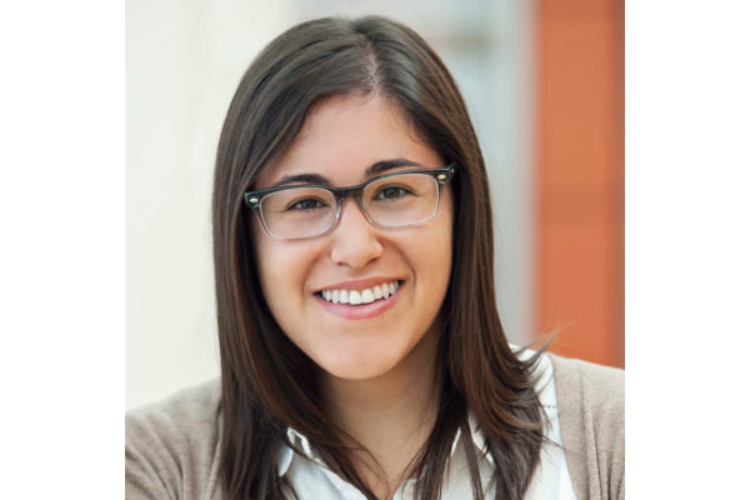Chair of Rothschild Lecture Explores Jewish Role in American Pop Culture with New Course

Students come to Emory with a strong foundation for reading academic work, but how can they learn to turn their scholarly gaze to popular media? This semester, Professor Katherine Rosenblatt is offering JS 273: American Jewish Popular Culture, where she hopes to encourage her students to be critical consumers of mass culture, and help them discern the scholarly apparatus through which to study Jewish cultural material in an academic setting.
Professor Rosenblatt earned her undergraduate degree from the Columbia-Jewish Theological Seminary dual program, where she studied US History and Ancient Semitic Languages. She wrote her senior thesis on anti-war activism of American rabbis during the Vietnam War; students are taught to think critically of how Jews are depicted in popular media. Rosenblatt’s goal as a scholar is responding to and exploring Judaism in a unique way - she aims for her work to emphasize the diversity of the Jewish past. This dual focus on history and religion helps define the questions she asks as an academic: How do we capture the dynamics of American Jewish identity? Who determines what is the best guarantor of a stable Jewish future, and could they be right? How do we consider Jews who appear secular but have some kind of relationship to tradition?
While these questions are not exactly easy to answer, students may find the tools to grapple with them in JS 273, where they will examine Jewish media from the early part of the twentieth century all the way until today. Although this course raises many of the same questions that a typical Jewish history course would, it visualizes them through a very different lens. Rosenblatt is suspicious of any claims of authenticity in media and therefore hopes her students think about all the different ways Jews both represent themselves and are represented by others; it will be important for students to think critically of the way Jews exist and are depicted in popular media.
Jews stand at the center of cultural industry in the United States, and learning how they earned that position and what made Jewish characters become so iconic also provides a deep look into the role of Jews in American society at large; however, this course is not the only way in which Professor Rosenblatt explores the role of Jews in the United States. This year, TIJS is bringing historian George Sánchez to Emory as this fall’s Rothschild Lecture speaker. Sánchez recently published Boyle Heights: How a Los Angeles Neighborhood Became the Future of American Democracy, a book that shows how successive waves of immigration shaped this particular LA community. Rosenblatt expects this lecture to offer a discussion of how Jews fit into the ethnoracial pluralism of Boyle Heights, and hopes Sánchez speaks to Jews of color.
Although JS 273 is a course about depictions of the Jewish experience, Rosenblatt considers it appropriate for anyone, from students who have no background in Judaism or Jewish culture, to students who feel very close to it. The material is entirely accessible to non-Jewish students, and one of Professor Rosenblatt’s favorite things about her courses is the diverse group of students they attract. Recent Emory alum Ania Korpanty recalls initially feeling “so lost” in Rosenblatt’s JS 101 course “as someone who is not personally religious,” but was reassured when “Professor Rosenblatt took the time to explain key concepts”. Korpanty went on to take two more classes with Professor Rosenblatt, because of “how inclusive her classroom feels”. Rising junior Jessie Dietz echoes this sentiment, calling Rosenblatt “extremely approachable outside of class”.
Professor Rosenblatt is committed to offering courses that allow students to examine Judaism not as an ancient religion, but as an identity and culture in the modern world. In the past, she has taught “Jewish Women in the Modern World” and “Jewish Georgia”, which also emphasize the work she has put into probing the intersection of Jews and American history. What differentiates this course is the pop culture nature of the material under consideration: instead of being asked to read JSTOR articles, students will be watching The Marvelous Mrs. Maisel, or listening to Sarah Silverman’s stand-up, or taking notes on Seinfeld reruns. Professor Rosenblatt believes in the value of being able to “read” different kinds of sources and locate within them the same ideas, politics, and critiques that can be found in more erudite material.
Professor Rosenblatt’s work in the department brings a unique perspective in understanding Jews and Judaism. Her JS 273 course this semester will not only teach about the exploits of famous Jews, but also how Jewish media can be understood and absorbed by non-Jewish communities, and how ordinary Jews themselves negotiate being both Jewish and American. By probing Jewish depictions and influences in American popular culture, students will examine the bigger picture of an incredibly storied and diverse Jewish past.
Published 9/22/22